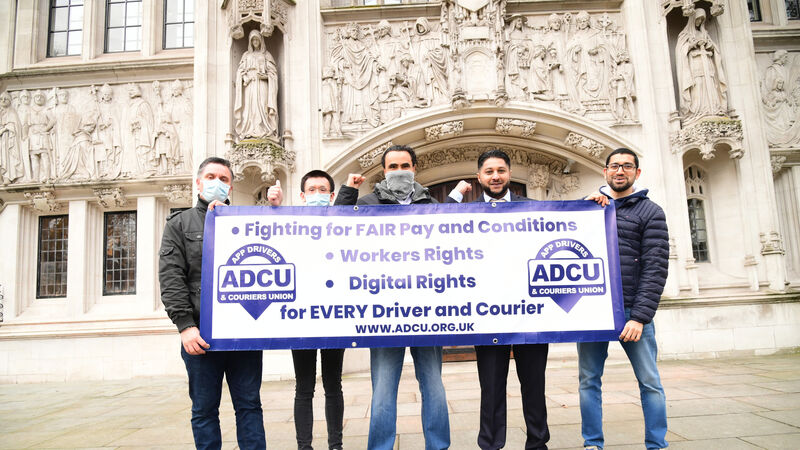Michael Clifford: UK court rulings give hope to precarious workers – it's time we follow suit

Uber drivers outside the Supreme Court, London, last Friday, after Supreme Court justices ruled against Uber operating companies and concluded that drivers should be classed as workers, not independent third-party contractors.
There was some recent good news in the world of precarious work, but it came from abroad.
Time will tell whether decisions handed down by courts in the UK and the Netherlands have any impact on those who are denied proper employment conditions in this country.













